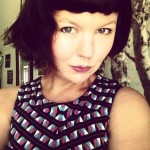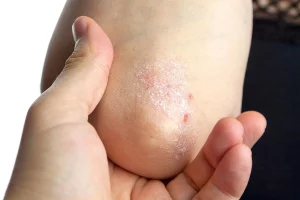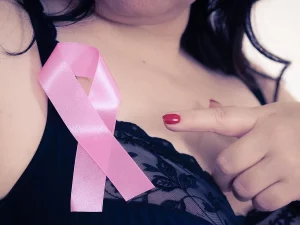The following is a post in our Side Book series, in which we speak with authors at length about their forthcoming books. Because, like our mammas always said: A well-read life is a well-lived life.
 ALREADY A PUBLISHERS WEEKLY PICK FOR 2015, Robin Rinaldi’s The Wild Oats Project: One Woman’s Midlife Quest for Passion at Any Cost, which hits shelves March 17th, is a provocative and powerful memoir of her experience pursuing an open relationship after 20 years of monogamy. It’s drawing comparisons to Wild and Eat, Pray, Love as a fiercely truthful story set to change the way we talk about what women want. Lady Clever had the opportunity to read The Wild Oats Project and speak with Robin about commitment, monogamy, and discovering yourself in the way that makes sense to you.
ALREADY A PUBLISHERS WEEKLY PICK FOR 2015, Robin Rinaldi’s The Wild Oats Project: One Woman’s Midlife Quest for Passion at Any Cost, which hits shelves March 17th, is a provocative and powerful memoir of her experience pursuing an open relationship after 20 years of monogamy. It’s drawing comparisons to Wild and Eat, Pray, Love as a fiercely truthful story set to change the way we talk about what women want. Lady Clever had the opportunity to read The Wild Oats Project and speak with Robin about commitment, monogamy, and discovering yourself in the way that makes sense to you.
LC: In your book, you describe your time in therapy (which spans decades) as a “hobby,” but also as a necessity. Some critics have said that one problem with the increasing popularity for memoir and first-person narrative is that most people don’t ask the hard questions of themselves. Do you think your commitment to therapy overcame that potential issue when writing?
RR: I was being self-deprecating when I called it a hobby. It was an absolute necessity and did span decades. I wouldn’t say my commitment to therapy helped me ask hard questions in the book; rather, I’d say my inborn temperament is one that continually asks hard questions, takes those questions to therapy, talks to others about them, loves to read memoirs. I have an overall fascination with the human condition. For the record, I don’t think asking the hard questions is the make-or-break factor in a memoir. I think good writing is. One thing I do dislike in memoir, though, is when the writer tries to provide too many answers.
LC: You remark on a journalist who gives up her regular newspaper column to immerse herself in rearing her third child — she says, in explanation, that some experiences are “better lived and not pondered.” When did you decide to write about your experience? Do you think, in this age of social media sharing, that we can still grasp the concept of living a life that is unobserved and undocumented?
RR: I always knew I’d write some sort of book, but not this one. In fact, I started on another book about the maternal urge, but I put it aside. The idea to write about the Wild Oats Project—which is what I actually called my year of open marriage while it was happening—didn’t occur to me until the end of that year, when my friend, who himself had authored several books, said, “You have to write about this.” I was terrified. And I do think it’s getting harder to imagine living a life without documenting it, though I still know people who do it, people who aren’t on Facebook or Twitter or Instagram. I kind of envy their adherence to their own physical existence.
LC: When writing, did you ever consider the potential reaction from the media? Were you concerned or excited about the possibility of a “Wild Oats effect” on culture, in the way we have seen the much-reported impact of 50 Shades of Grey or Eat, Pray, Love?
RR: Sure, I’ve considered a potential reaction from the media, but for some reason I envision the “Wild Oats effect,” if there is one, playing out more in women’s internal worlds than in their outer lives. I don’t foresee a lot of women opening up their marriages or signing up for Tantra workshops, but I do imagine many of them will feel validated in their feelings about men, sex, and maternity, validated perhaps in their hunger and their anger and their lust. I hope they’ll feel comforted by the sight of a woman confessing absolutely contradictory urges, acting out of instinct instead of intellect, and giving up perfectionism in order to make much-needed mistakes. I hope to inspire their thoughts and feelings more than their actions.
LC: You write that you are unsure whether the drive towards monogamy stems from social conditioning or from biology. How do you feel about monogamy currently, some time since your experience?
RR: I am monogamous again, and much less interested in non-monogamy than I was for those few years. I do think our attitude about monogamy is slowly beginning to shift and loosen, which is a good thing, because then we’ll be freer to choose it, or not. Monogamy obviously runs deep in us, so deep as to feel biological — but then, who knows? Maybe our social conditioning is so deep we mistake it for the biological. On the other hand, I’m not so sure women are necessarily more monogamous than men. They might be too busy cleaning the house and raising children to act on their non-monogamous urges, but to me, this “women want monogamy, men want variety” story feels like something we tell ourselves. It soothes us. If we believe men are wild at heart, then someone’s got to hold down the fort. If we admit women are also wild at heart, where does that leave us? In chaos.















